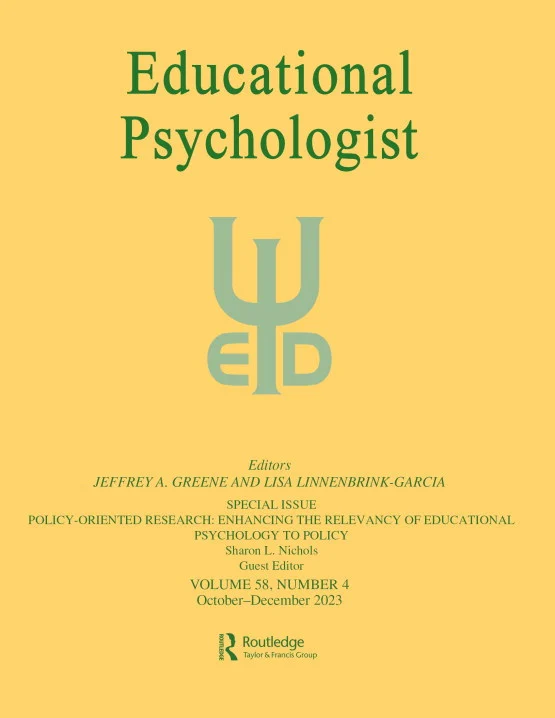重新定义父母参与:一个解释中国移民父母以学校和家庭为基础的参与的社会文化模型
IF 11.4
1区 心理学
Q1 EDUCATION & EDUCATIONAL RESEARCH
引用次数: 5
摘要
尽管人们越来越认识到父母参与的多种形式,但关于社会文化背景对父母参与子女教育的关键影响的研究却很少。本文在胡佛-邓普西父母参与模型的基础上,提出了一个新的社会文化模型来解释中国移民父母在学校和家庭参与中的动机。在对该模式的讨论中,对每个组成部分都进行了详细的描述,但重点是指向三个一般组成部分:中国文化的学习模式、父母角色建构和学校-家庭关系,包括不同于美国主流文化模式的教师父母参与实践。本研究表明,中国移民父母更倾向于参与某些类型的校本活动(例如,参加家长会和学校活动),而不是其他类型的活动(例如,在教室做志愿者和参加PTO会议/学校理事会)。中国移民父母的参与过程还与家庭社会经济地位和移民环境相互作用。文章总结了对研究和教育实践的启示。本文章由计算机程序翻译,如有差异,请以英文原文为准。
Reconceptualizing parental involvement: A sociocultural model explaining Chinese immigrant parents’ school-based and home-based involvement
Abstract Despite growing recognition of diverse forms of parental involvement, scarce research exists on the critical influence of sociocultural contexts on parental involvement in their children’s education. Building on and modifying Hoover-Dempsey’s parental involvement model, this article proposes a new sociocultural model to explain Chinese immigrant parents’ motivations for school-based and home-based involvement. Within the discussion of the model, each component is detailed but the emphasis is directed to three general components: the Chinese cultural model of learning, parental role construction, and school-family relations, including teachers’ parental involvement practices that differ from the U.S. mainstream culture’s model. This review demonstrates that Chinese immigrant parents tend to be more involved in some types of school-based activities (e.g., attending parent-teacher conferences and school events) than others (e.g., volunteering in classrooms and attending PTO meetings/school council). Chinese immigrant parents’ involvement processes also interact with family socioeconomic status and immigrant contexts. The article concludes with implications for research and educational practice.
求助全文
通过发布文献求助,成功后即可免费获取论文全文。
去求助
来源期刊

Educational Psychologist
Multiple-
CiteScore
19.10
自引率
3.40%
发文量
16
期刊介绍:
The Educational Psychologist is a scholarly journal dedicated to exploring the psychology of learning and instruction. Articles in this journal encompass a diverse range of perspectives, from examining psychological mechanisms to exploring social and societal phenomena related to learning and instruction. The journal publishes theoretical and conceptual articles, as well as reviews and meta-analyses, that significantly contribute to theory or advance the methods used to explore educational psychology. Emphasizing innovation and advancing understanding, the journal does not publish articles solely reporting the methods and results of empirical studies; instead, all submissions, including reviews and meta-analyses, must offer clear implications for advancing theory. In addition to regular articles, the journal features special issues that delve into important themes in educational psychology, along with focal articles accompanied by peer commentary.
 求助内容:
求助内容: 应助结果提醒方式:
应助结果提醒方式:


